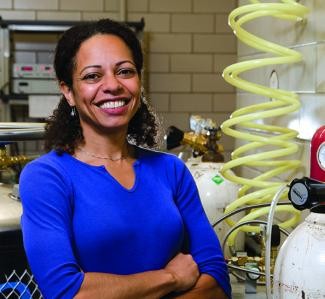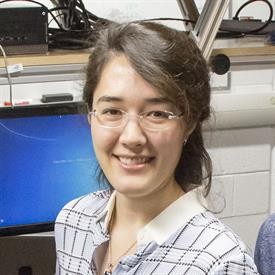Materials science discoveries offer enormous value to humanity, and it’s a fascinating and rewarding area in which to pursue a career—but not every talented young person gains meaningful exposure to this field in time to pursue it. Now, under new seed funding from the National Science Foundation (NSF), UIUC’s Illinois Materials Research Science and Engineering Center (I-MRSEC) will partner with two other universities to provide undergraduates from underrepresented groups with robust pathways towards graduate study and eventual careers in materials science.

The grant is from NSF’s Partnerships for Research and Education in Materials (PREM) program, which nurtures research partnerships between minority-serving institutions (MSIs) and large-scale, NSF-supported research centers in order to expand opportunities in materials science and engineering for young researchers from underrepresented groups. The funds will help build a relationship between the NSF-supported I-MRSEC and two historically black colleges and universities (HBCUs) in Tennessee: Tennessee State University (TSU) and Fisk University. The relationship will be centered around collaborative research on low-dimensional polymeric materials synthesis and characterization, with some additional effort in production and modeling of heterostructures with 2D materials, all geared towards implementing devices that can actuate, vibrate, deform, and perform optical, electronic, and sensing measurements.
“I am thrilled that we were awarded a PREM, which furthers the goals of our Center, and the campus as a whole, by allowing us to partner with MSIs to increase recruitment, retention, and degree attainment of those underrepresented in STEM,” says Nadya Mason, who is the Rosalyn Sussman Yalow Professor in Physics and director of I-MRSEC, as well as the Illinois lead for the PREM effort.
The partnership will initially focus on mentoring a group of HBCU undergraduates to the point that they choose to enroll in materials science M.S. or Ph.D. programs by the end of the three-year seed grant. Success in that endeavor might result in a second, much larger PREM award, which would pursue a broader research agenda.

Virginia Lorenz, who is an associate professor in Physics, will serve as education and outreach director. She explains that I-MRSEC’s research infrastructure and team offer aspiring materials scientists a tremendous opportunity to get hands-on experiences that most universities can’t offer. “We’re very lucky to have facilities and a wide range of expertise amongst the faculty and the staff at the Materials Research Laboratory to support our research. So the idea is by pairing these minority-serving institutions with an institution such as ours, we can enhance the opportunities for students at those institutions to go on to advanced degrees.”